A geography masters degree is intended for students and professionals who are looking to learn advanced geographical methods and possibly conduct research in the field.

The curriculum in geography grad programs is designed to give you the tools and skills to apply your education in a professional setting or move on to a PhD program.
Editorial Listing ShortCode:
There is a range of positions and opportunities that may be available for geography professionals with advanced education and training.
Geography Masters Programs Online

A geography master’s degree is designed for students who want to study geography at a deeper level. Those who apply to geography master’s programs may want to advance in an occupation that employs geographical skills. Others earn a masters in geography as a step toward attending a PhD program in geography or a related field.
Editorial Listing ShortCode:
Once in a geography master’s program, you can learn about the development of geography through the years as well as its various subdisciplines.
As a master’s student of geography, you may take classes in many of the following topics:
- Cultural geography
- Physical geography
- Political geography
- Geography theory
- Biogeography
- Geographic information system (GIS)
In addition to coursework, masters programs often require the completion of a thesis. If you’re required to write a thesis, you’ll conduct geographic research using what you’ve learned in your classes.
A geography master’s degree can be useful for a variety of positions. Some professionals work as geographers or in related positions, such as GIS analysts and environmental scientists. Cartography, surveying, and urban or regional planning can be other potential sectors for graduates of geography master’s programs.
Common Online Geography Masters Concentration

Geography is a field that has expanded through the years, so there are many different concentrations and types of geography.
You may choose to specialize in one of the many geography concentrations during graduate school, such as:
- Critical Geography. This concentration promotes social justice issues and draws from many theoretical frameworks, including Marxism and feminism.
- Geographical Information Systems. This concentration looks at GIS systems and how they function and can be applied to solving real-world problems.
- Physical Geography. This concentration works closely with the natural sciences to explain processes that occur in the natural environment.
- Integrated Geography. This branch of the field looks at how human-environmental systems form and studies the interactions between humans and land.
- Technical Geography. This sector of geography is concerned with using geographical tools and methods to collect information and spatial data.
Some students choose to take elective classes in different specializations in order to see which subfield they prefer.
Geography Careers and Salaries
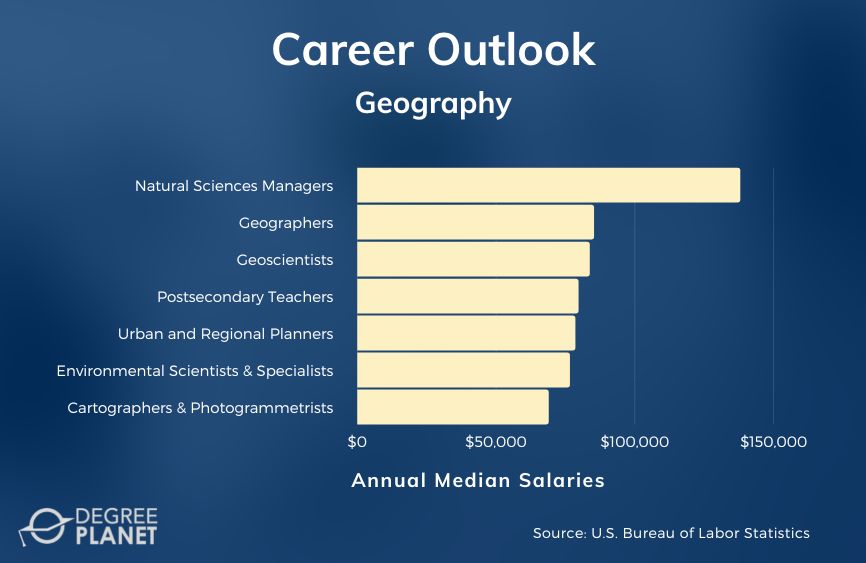
A geography masters degree program could lead to a number of potential career paths. Your chosen concentration may influence your job qualifications and opportunities.
Editorial Listing ShortCode:
According to the Bureau of Labor Statistics, here are some potential career paths, along with their median salaries, that are related to the field of geography.
| Careers | Annual Median Salaries |
| Natural Sciences Managers | $137,900 |
| Geographers | $85,220 |
| Geoscientists | $83,680 |
| Postsecondary Teachers | $79,640 |
| Urban and Regional Planners | $78,500 |
| Environmental Scientists and Specialists | $76,530 |
| Cartographers and Photogrammetrists | $68,900 |
| Surveyors | $61,600 |
| Survey Researchers | $59,740 |
| Surveying and Mapping Technicians | $46,910 |
A masters in geography may also help you qualify for senior or leadership positions in the field. Natural science managers may work with research and development companies, with the government, and in scientific and technical services firms.
MS in Geography Curriculum & Courses

Each geography program has its own curriculum and courses that are based on the strengths of its faculty and its requirements for its students.
The following are some examples of courses you may encounter in a geography masters program:
- Geographic Thought: This course surveys the current theoretical frameworks behind the geographic field, specifically in the 20th and 21st centuries.
- Field Methods: This class teaches about employing different geographic and GIS methods in the field in order to conduct research.
- Research in Geography: This course instructs you on how to design geographic research and the different methodologies you could employ.
- Biogeography: This class gives you the foundations and fundamentals behind the subfield of biogeography.
- Cultural Geography: This class introduces you to the subfield of cultural geography, its theoretical underpinnings, and its practice.
- Medical Geography: This class reviews the intersection between public health and geography, looking at how geographic methods can improve a population’s health.
- Political Geography: This course explores political processes playing out through space, the realm of the discipline of political geography.
- Geographical Ecology: This class looks at how geography can help with conservation and other ecological initiatives.
- World Systems Theory: This class introduces you to world systems theory and the historical development of capitalism over time and space.
- Geographical Data: This course teaches you how to use quantitative methods in research, introducing you to software and tools that geographers use.
In addition to the courses listed above, you may take thesis writing classes if your program requires the completion of a thesis.
Admissions Requirements

In general, geography programs may ask you to fulfill some of the following admissions requirements:
- Transcripts. Graduate programs ask you to submit postsecondary transcripts from any schools you attended in the past.
- Letters of recommendation. Many programs want you to ask for letters of recommendation from professors familiar with your academic work.
- Personal statement. Your personal statement can include your geography interests and career goals.
- Writing sample. Some programs ask that you submit an academic writing sample to demonstrate your writing abilities.
It’s beneficial to research a prospective school’s admissions requirements to discover their specific criteria.
Accreditation
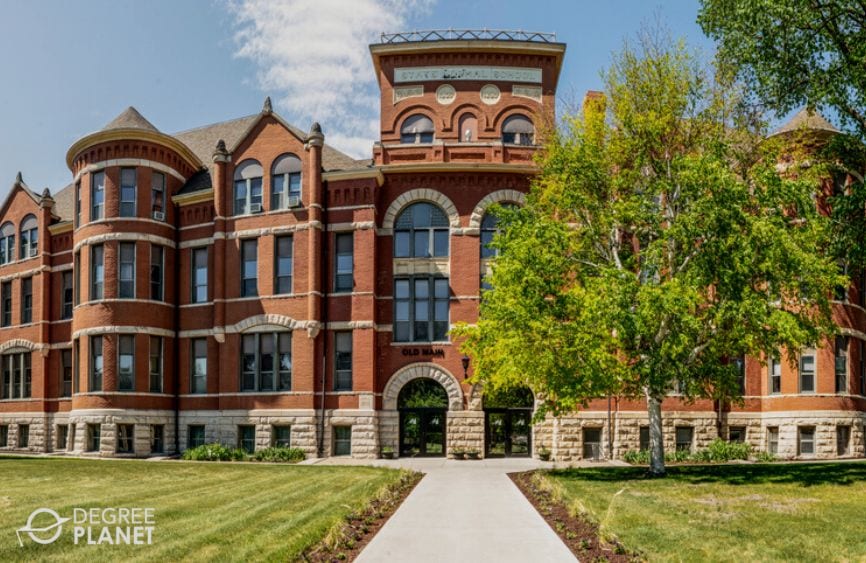
To ensure that the graduate education you receive is rigorous and meets high standards, you may want to consider schools with regional accreditation.
Regional accreditation is a process by which a regional accrediting agency reviews a university’s educational practices and offerings to ensure that they meet quality standards. Earning a degree from an accredited university may positively impact your chances of future employment or of attending a doctoral program.
Editorial Listing ShortCode:
To see if the universities you are applying to are legitimately accredited, you can visit the US Department of Education’s website.
Geography Licensure and Certifications

While professional certification is not always required, becoming certified can demonstrate your skill sets to organizations. Certifications are granted by professional organizations to indicate mastery or competence in a profession or skill. Examples of industry certifications include:
- GIS Certification: Awarded by the GIS Certification Institute
- ASPRS Mapping Scientist Certification: Awarded by the American Society for Photogrammetry and Remote Sensing
- ASPRS Technologist Certification: Awarded by the American Society for Photogrammetry and Remote Sensing
Another option for professional development is to earn an academic graduate certificate in GIS or another geographic specialty. Graduate certificates are earned by completing specified coursework through a college or university.
Financial Aid and Scholarships

There are many sources of financial aid that can assist qualifying graduate students with paying for upfront school costs.
Government financial aid, including federal aid and other state aid programs, is the most common source of aid. To see if you qualify for federal aid, you can file a Free Application for Federal Student Aid (FAFSA). State programs may have their own websites.
Scholarships are another popular source of aid. You can research different scholarship opportunities and apply to as many as you’re eligible for. Additionally, if you are currently employed, then your employer might provide some form of assistance or professional development program for workers who are furthering their education.
What Can You Do with an Online Masters in Geography?

There is a range of positions that graduates of geography master’s degree may pursue. Your chosen concentration may impact your specific qualifications.
For example, some graduates go on to work as geographers for a federal or state agency or a professional services firm. Others find employment as cartographers, often working for either private interests or the government. Related career paths include GIS analyst, surveyor, regional planner, software consultant, and environmental scientist.
Those interested in advanced research or postsecondary teaching usually continue their education and obtain a PhD in geography or a related discipline.
How Long Does It Take to Get a Geography Masters Online?

A masters program can usually be completed in 1 to 2 years with full-time study. The time it takes to complete a geography masters degree depends on a number of variables, such as a program’s required credit amount and your enrollment status.
For instance, if a program requires 36 credit hours of study and does not require you to complete a thesis, you may be able to finish the program in 1 year if you study full-time, including during the summer. A thesis requirement in your program will add some time to this calculation. Studying part-time can add to your overall timeframe as well.
What’s the Difference Between a Geology vs. Geography Graduate Programs?
Geography and geology are two distinct disciplines with two different degree paths.
| Geology Graduate Program | Geography Graduate Program |
|
|
It’s helpful to apply to the graduate program that best fits what you want to do.
Is a Master in Geography Degree Worth It?
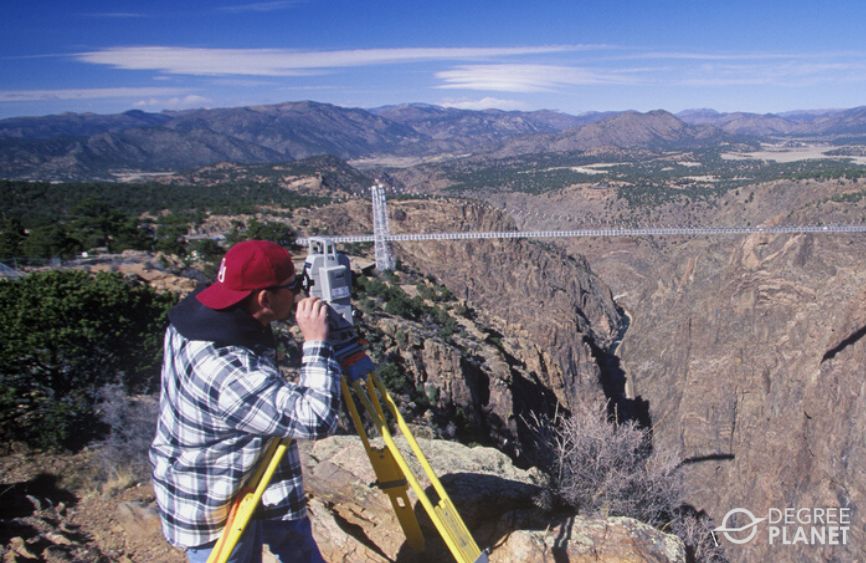
Yes, a master in geography degree is worth it for many students. Geography is a very broad field, as it offers different ways to study the Earth and human interactions with the Earth. In addition, there is a range of opportunities that may be available for professionals with a background in geography.
Editorial Listing ShortCode:
Common careers related to this field include geographer, cartographer, geoscientist, GIS analyst, and environmental specialist. The Bureau of Labor Statistics projects 7% job growth for life, physical, and social science occupations over the next ten years. Some graduates go on to earn a PhD in the subject, helping them qualify for teaching positions at the university level.
Best Universities Offering Online Masters in Geography Degree Programs
Methodology: The following school list is in alphabetical order. To be included, a college or university must be regionally accredited and offer degree programs online or in a hybrid format.

Arizona State University offers a Master of Arts in Geography. Graduates often pursue careers as cartographers, environmental economists, GIS analysts, geographers, and professors. Classes meet fully online and are typically 7.5 weeks long. A minimum of 30 credit hours must be completed to graduate.
Arizona State University is accredited by the Higher Learning Commission.

Liberty University offers a 100% online program for a Master of Arts in Geography. Concentrations are available in Urban Planning, Disaster Management, Geographic Information Systems, and General Studies. Up to 18 qualifying credits from outside institutions may be transferred in. The program’s 36 required credit hours can typically be completed in 1.5 years of full-time study.
Liberty University is accredited by the Southern Association of Colleges and Schools Commission on Colleges.

Marshall University offers a Master of Arts in Geography. Potential classes include Spatial Statistics and GIS, Environmental Geography, Remote Sensing and Photogrammetry, and Seminar in Sustainable Transportation. The degree may be completed conveniently online. The program admits incoming students three times each year in summer, fall, and spring terms.
Marshall University is accredited by the Higher Learning Commission.
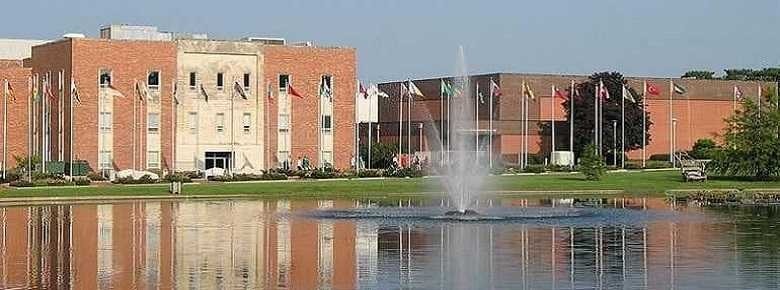
Northwest Missouri State University offers a Master of Science in Geographic Information Science. Many graduates pursue careers as conservationists, climate scientists, cartographers, GIS technicians, and app developers. The curriculum consists of 10 required courses for a total of 30 credit hours. The coursework can be completed fully online, typically in 20 months.
Northwest Missouri State University is accredited by the Higher Learning Commission.
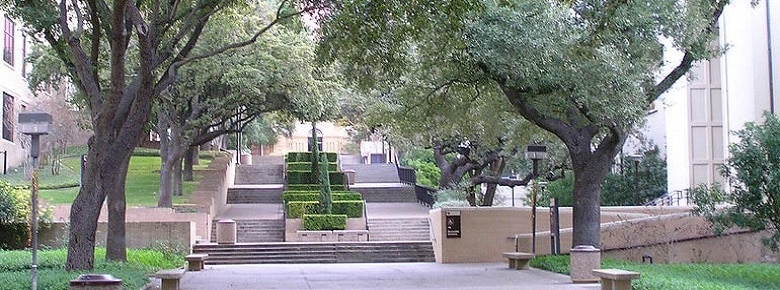
The Master of Arts in Geography program at Texas State University offers a concentration in Geographic Education. It can potentially be completed in 2 years of full-time study. This program may be an ideal fit for current or aspiring secondary teachers hoping to deepen their knowledge of geography, earth and environmental science, and social studies.
Texas State University is accredited by the Southern Association of Colleges and Schools Commission on Colleges.

The University of Central Arkansas offers a Master of Geographic Information Systems. This program is intended for students who have completed previous undergraduate or graduate coursework in GIS or related fields. This program is housed entirely online. Students may culminate their studies with either a traditional thesis or a non-thesis portfolio project.
The University of Central Arkansas is accredited by the Higher Learning Commission.

The University of North Alabama offers an online program for a Master of Science in Geographic Information Science.
This interdisciplinary curriculum combines concepts from fields such as technology, environmentalism, business, government, social sciences, and ecology. Potential courses include Geographic Methods and Design, Geospatial Science, and Advanced Quantitative Methods. This program can typically be completed in 2 years.
The University of North Alabama is accredited by the Southern Association of Colleges and Schools Commission on Colleges.
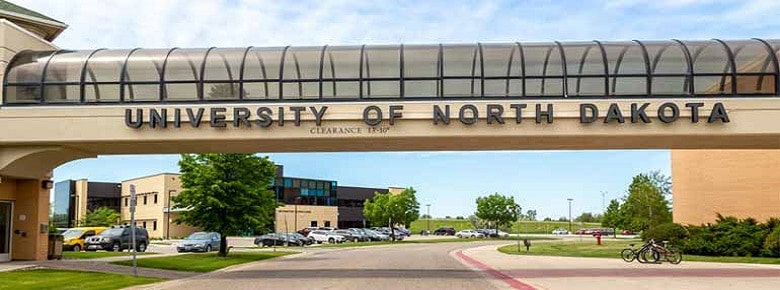
The University of North Dakota offers a Master of Geographic Information Science. Classes are designed to build skills in professional writing, project management, data analytics, and budgeting. They meet asynchronously online in an effort to accommodate students with even the busiest schedules. Online students have access to the same tutoring, advising, and technical support resources as traditional students.
UND is accredited by the Higher Learning Commission.

The University of Oklahoma offers an online program for a Master of Science in Geospatial Technologies. It aims to help students deepen their understanding of the relationship between geography and technology.
Courses cover concepts like climatology, modeling, data visualization, cartography, and land use change. A minimum of 33 credit hours must be completed to graduate. The degree can typically be completed in 21 months.
The University of Oklahoma is accredited by the Higher Learning Commission.

West Virginia University offers a Master of Science in Geographic Information Systems and Spatial Analysis. Potential courses include Open-Source GIS, Geopolitical Perspectives, Remote Sensing Principles, and Digital Cartography. This program is housed fully online. Students must complete a minimum of 31 credit hours while maintaining a 3.00 GPA or higher to graduate.
West Virginia University is accredited by the Higher Learning Commission.
Getting Your Masters in Geography Online

Earning a master’s in geography degree online may be the next step in your professional development and advancement.
Many masters programs offer a variety of concentrations so you can tailor your studies to your preferred subfield. Specialty areas may include physical geography, geographical information systems (GIS), and integrated geography. In order to find the program that’s right for you, it’s strategic to research and compare various programs’ admissions requirements, faculty strengths, and course offerings.
The sooner you start exploring geography masters programs from accredited universities, the sooner you can begin this next step in your educational journey.

